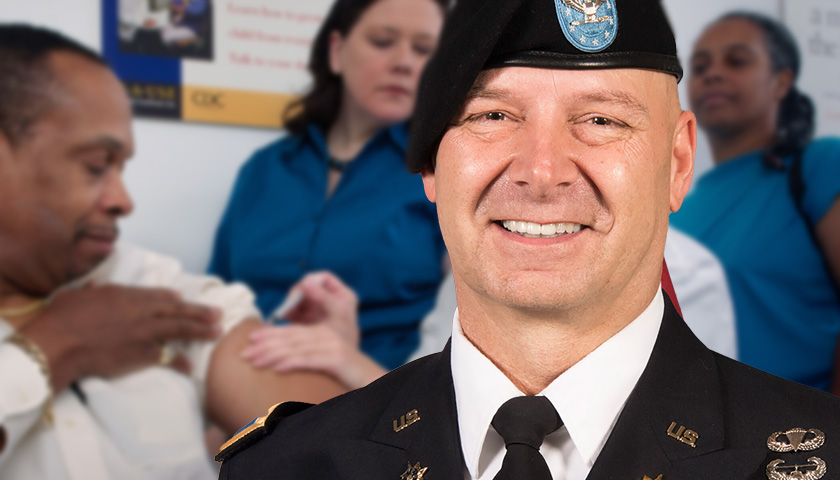Pennsylvania State Senator Doug Mastriano (R-Harrisburg) hosted a panel discussion Friday with medical experts to highlight the four pillars of pandemic response, the failed medical establishment, and his new Medical Freedom legislation.
Expert panelists were:
- Cardiologist Peter McCullough M.D., a worldwide leader in pandemic response who has previously testified in the U.S. Senate regarding the pandemic response and early treatment for COVID-19.
- Chiropractor Dr. Bryan Ardis, who shared his research on ongoing medical protocol for COVID, and the impact of current medical protocols, such as the use of Remdesivir, in hospitals on health.
- Former Silicon Valley tech executive Steve Kirsch, a philanthropist and Substack author who created the COVID-19 Early Treatment Fund (CETF) to fund researchers working on repurposed drugs, including fluvoxamine, which reduces death from COVID by a factor of 12.
- Attorney Thomas Renz, Esq., who serves as counsel for many federal lawsuits challenging COVID-19 lockdowns, mask mandates, and vaccine requirements.
McCullough, who keynoted the discussion, said that, in addition to treating COVID-19 patients, he is currently “examining patients who are incurring fatal and nonfatal injuries from the COVID-19 vaccine program.”
McCullough discussed the four pillars of pandemic response:
- Reduce the spread of the virus:
As each person becomes ill with the syndrome, they can indeed pass it to a susceptible person, but transmission is only from acutely ill to susceptible person only. Someone who has no symptoms poses no threat to someone else, whether they be susceptible or not susceptible. That means on pillar number one, there should have never been any lockdowns, there should never have been any social distancing or any measures for people who are well.
“Sadly, masks, hand sanitizers, social distancing all has been subjected to study and all of them have failed,” McCullough added.
- Early treatment:
Early treatment also reduces the spread of the illness because, untreated, the average person is contagious and spreads the illness for two weeks. But, early treatment, using a variety of drugs, reduces the spread of the illness, reduces the duration of infectivity to about three to four days. That is a massive difference.
“Multi-drug therapy for COVID-19 reduces the risk of hospitalization and death with the full breadth of drugs that we have right now by 95 percent,” McCullough stated, adding early treatment for COVID-19 “should not be controversial”:
Whether I prescribe prednisone for an asthmatic patient or for a patient with acute COVID-19, there should be absolutely no resistance, there should be no reluctance, and there certainly shouldn’t be any type of chill put on an attempt for a doctor to treat an acutely sick patient.
“Tens of millions of hospitalizations could have been avoided with a comprehensive early treatment approach,” McCullough asserted.
- In-hospital care:
In-hospital care is a last resort. No one should be thinking that the eventuality is hospitalization, but in fact it’s occurred. It’s occurred tens of millions of times. The vast majority of deaths with COVID-19 occur in hospitalized patients, meaning we have two weeks, three weeks, four weeks of time to try to treat this illness before the patient dies on week five.
McCullough alerted his listeners to the following alarming situation:
I want to make the observation, I want to make the record known not a single hospital in the United States, and not a single hospital in this state, claims to be a center of excellence for the treatment of COVID-19. Now we’re two years into this, these same centers and you have them in this great state, claim to be experts and have centers of excellence in cancer care. And cardiovascular care. Yet COVID-19 has been a large book of business for hospitalized patients, and there appears to be no claim of excellence.
- Vaccination:
McCullough said nursing homes have been “the only place where there was ever any documented hospital health care worker-to-patients spread or vice versa.”
“There seems to be a progressive interest in vaccinating younger and younger individuals who are not at risk for serious severe outcomes,” he added.
Peter McCullough MD MPH testifies in Pennsylvania Senate for medical freedom act. He presents four pillars of pandemic response that the government never addressed. They could have saved 95% hospitalizations and lives with #EarlyTreatment. https://t.co/FeZ2bX8G6U
— IP4PI (@IP4PI) March 6, 2022
In addition to Mastriano, lawmakers attending the panel discussion included: Senator Michelle Brooks (R), chair of the Senate Health and Human Services Committee; State Representative Dawn Keefer (R-Dillsburg); and State Rep. Rob Kauffman (R-Franklin).
– – –
Susan Berry, PhD, is national education editor at The Star News Network. Email tips to [email protected].




